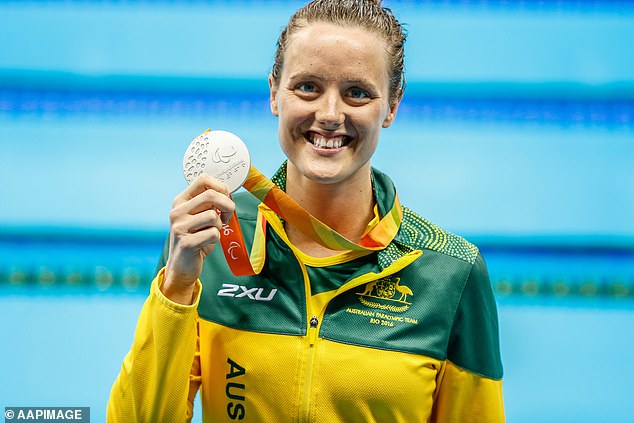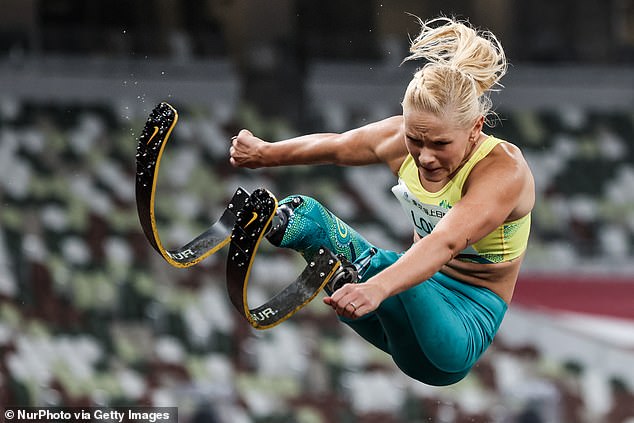- Vanessa Low has highlighted concerns about the ranking system
- Possible flaws in the system have been raised in the past.
- You might see athletes winning medals in the wrong classification.
Australian Paralympic champion Vanessa Low has warned that qualification problems pose a bigger problem than doping at this year’s sporting bonanza in Paris.
The Paralympic Games, which begin tonight with the opening ceremony on the Champs-Élysées, have a classification system that determines which groups athletes are divided into based on the type and severity of their disability.
Qualifying undoubtedly offers athletes the incredible opportunity to compete and inspire millions on the biggest stage, but questions have been raised about the system and how competitors are categorized.
Allegations that athletes exaggerate or even lie about symptoms have marred recent Paralympic Games, and the International Paralympic Committee will introduce a new code next year, the first time it has done so since 2015.
“The new code promises improved classification for athletes and continued growth in the trust and integrity of para-sport classification and competition,” the IPC said earlier this year.
Australian long jumper Low has accepted that athletes could win gold medals in categories they should not compete in.
“I mean, we always take that risk and I think this has happened in the past,” Low told Nine’s Wide World of Sports.
‘The reality is that classification is still quite a subjective matter in some classifications where it is very difficult to establish measures, especially when looking at cerebral palsy classes where you cannot see exactly how the disability affects the athlete.
Vanessa Low has shared her concerns with the qualification system at the Paralympic Games

The Games begin tonight in Paris with the opening ceremony.
“At the moment, with the way the system is, you can find little loopholes and exaggerate some of the disabilities that athletes have, and I really hope that the update to the classification code will mean that those windows become much smaller and that athletes who do the right thing are protected from wrongdoing.”
Low stressed the seriousness of the problem, saying it was more important than the debate over the anti-doping system.
“It’s probably as important, if not more so, than the anti-doping system, because the Paralympics are based on classification,” Low added.
‘If we didn’t have a classification, we would have just one competition and it wouldn’t be fair at all. We all have different disabilities and they affect us differently and therefore we need classifications.
“If we get it wrong and we don’t have the same group of athletes that can be compared fairly, then the sport isn’t worth watching, because we don’t see equality of opportunity and equality of performance.”
Australian swimming legend Ellie Cole echoed Low’s thoughts and shared the mental struggles that come with concerns about the system.

Australian swimmer Ellie Cole also shared her concerns with the system.
“It was really difficult when I was an athlete because I was competing and I could think that someone I was competing against might not be in the right category,” Cole said.
‘But at the same time, most athletes don’t have medical degrees and they don’t really know what’s going on behind the scenes with someone else’s disability, so you really just see what’s in front of you and make a judgment or an assumption about what’s in front of you.
“I think the fact that the IPC has done it again (revamping the classification code) shows how much the classification system is under scrutiny, particularly now that the Paralympic movement has more exposure. I think it’s a really important step towards achieving a fair and equal spirit of sport and I hope that some really positive changes will come about.”


